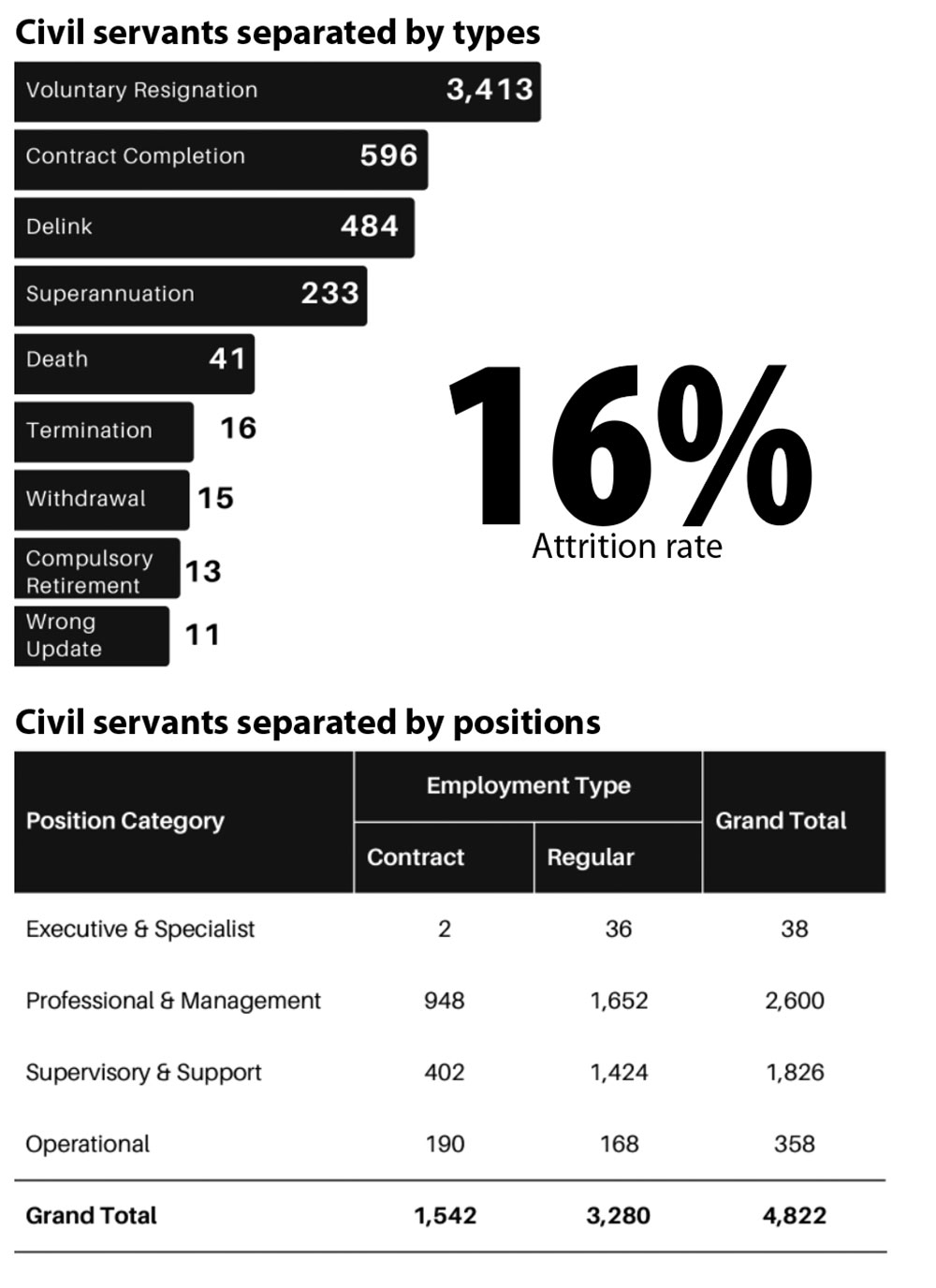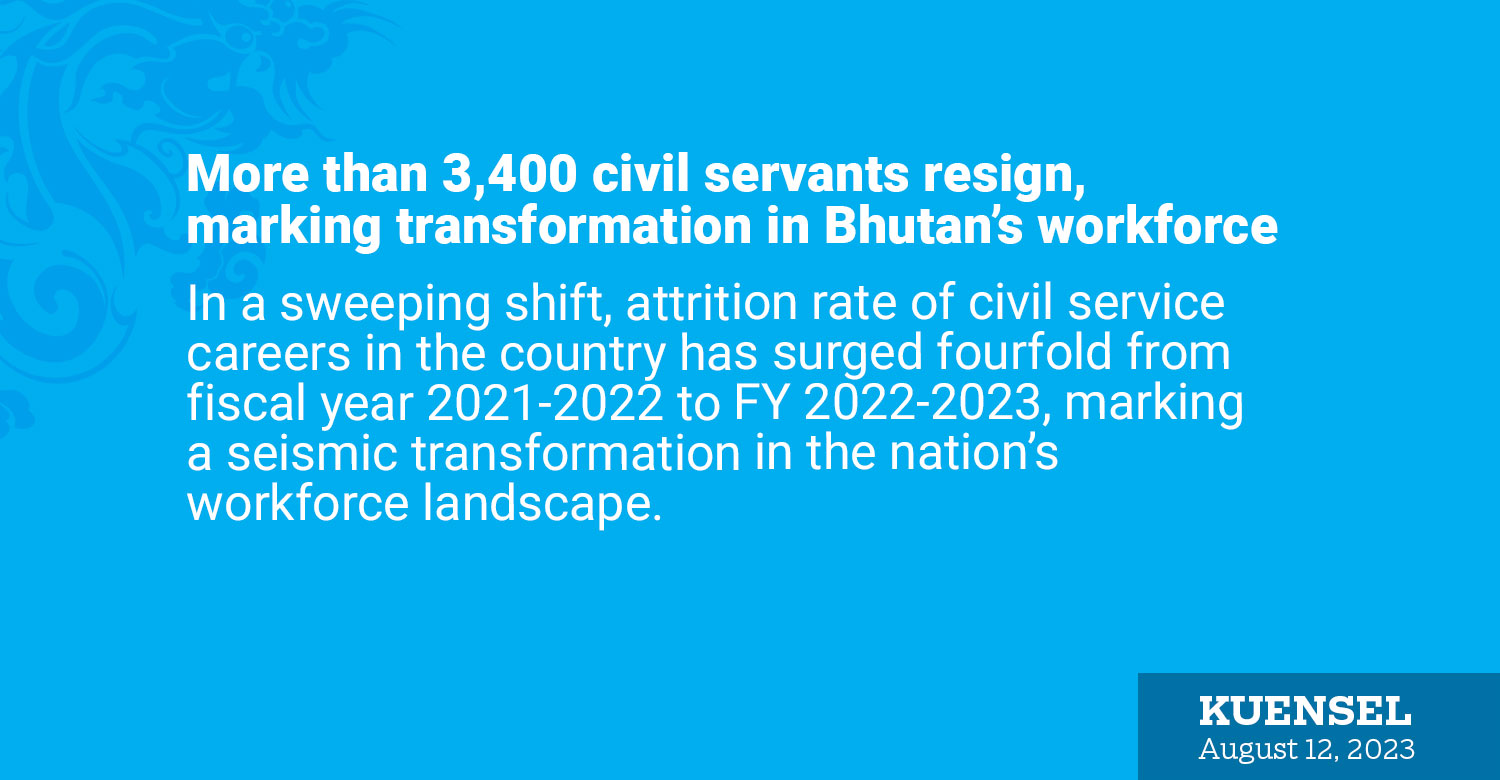Dechen Dolkar
In a sweeping shift, attrition rate of civil service careers in the country has surged fourfold from fiscal year 2021-2022 to FY 2022-2023, marking a seismic transformation in the nation’s workforce landscape.
The annual report of the Royal Civil Service Commission (RCSC) for 2022-2023 reveals a remarkable trajectory, with the attrition rate skyrocketing to an exponential 16 percent from July 2022 to June 2023.
This sharp ascent contrasts with the attrition rate of 4.6 percent witnessed during FY 2021-2022.
Diving into the statistics, 2022 registered an attrition rate of 8.62 percent, but this year, within a mere six months, that rate surged to approximately 10 percent.
Throughout the fiscal year, 4,822 civil servants exited their roles, with 3,413 resigning voluntarily, 590 completing their contract terms, and 484 being delinked from the civil service.
Notably, voluntary resignations accounted for a substantial 10 percent of the attrition rate.

Within the voluntary resignations, the report points to a trend prevalent among senior positions and teachers, illustrating that these departures often transpire from experienced ranks.
Economic factors appear to be the primary impetus behind attrition, leading to gaps within agencies and potential disruptions in service delivery.
The report identifies the professional and management level as the highest contributor to separation, with 2,600 departures recorded from July 2022 to June 2023. The Supervisory and Support level followed closely, accounting for 1,826 departures.
Mindful of this significant trend, the RCSC is actively exploring measures to curtail attrition rates. Among these, the introduction of an additional recruitment window alongside the existing single-window recruitment process stands out.
This approach aims to onboard regular staff below the Supervisory and Support category during mid-year, fortifying agencies with vital personnel.
The RCSC underscores these initiatives as pivotal in fostering a conducive work environment and nurturing a competitive edge within the civil service.
Such advancements work in tandem to both attract and retain talent within the civil service realm, thereby addressing the attrition challenge.
Moreover, the RCSC is actively engaged in sculpting a manpower management framework, designed to bestow heightened flexibility upon agencies in human resource management.
This approach recognises the evolving needs of the workforce and empowers agencies to adeptly navigate this landscape.
RCSC envisions the implementation of contractual tenure arrangements for senior civil servants, accompanied by performance-based incentives. This dual approach seeks to both enhance commitment levels and drive excellence within the civil service.
As of June this year, the civil service brigade comprised a total of 29,241 individuals, with males constituting 60 percent of the workforce.
This promising statistic dovetailed with the recruitment of 3,244 new civil servants within a year, marking an upward trajectory from 2021.


